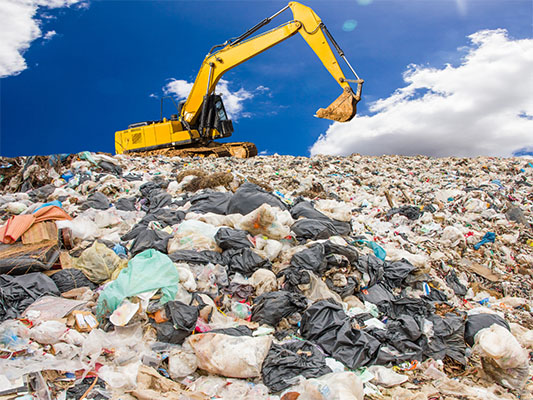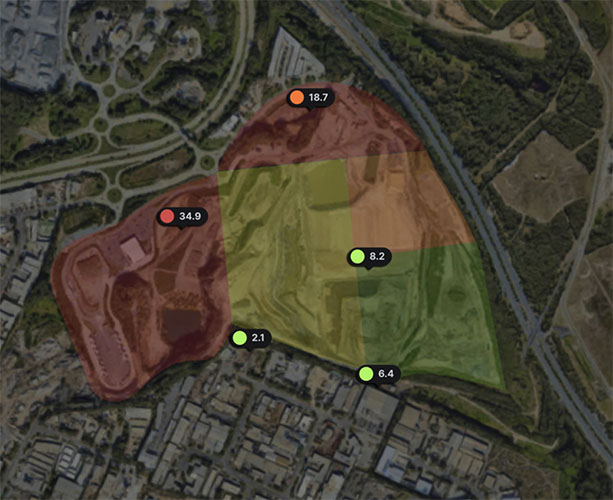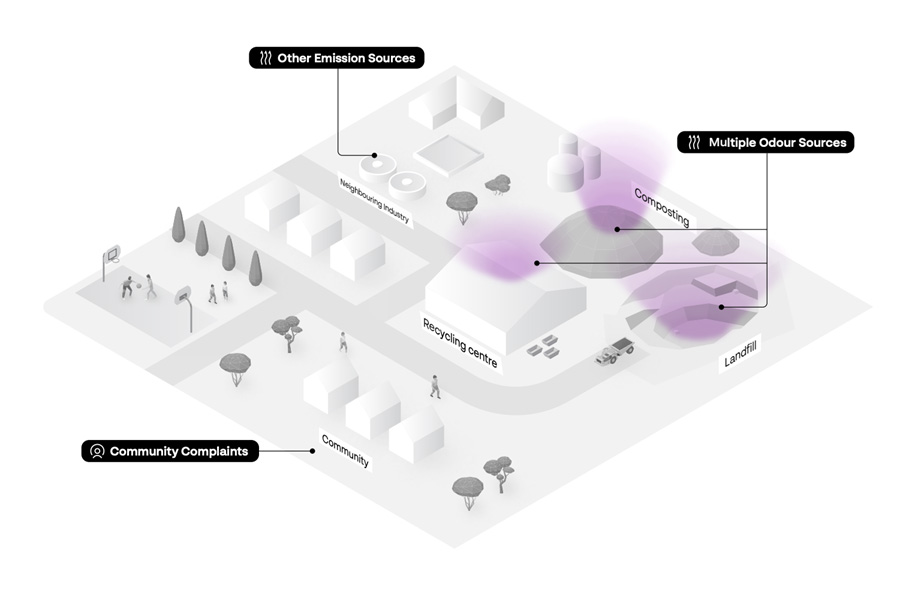Revolutionizing Landfill Management: Maximizing Efficiency and Sustainability with Digital Solutions
April 9, 2024
Author: Andres Quijano, Sales Manager – Americas, Envirosuite

The imperative to effectively manage landfill operations amidst community and sustainability concerns has sparked a crucial strategy: leveraging digital tools within the solid waste sector. These tools are transforming the game by pinpointing emission sources, enhancing environmental impact management, and improving waste practices. The benefits are vast – from reducing ecological harm and community impact to optimizing resources and boosting sustainability.

Technology is now paving the way for environmental managers to obtain situational awareness of their sites to identify problematic sources of landfill gas and odors in real-time.
The integration of digital tools into waste operations brings numerous advantages:
- Empowering Data-Driven Decision-Making: Comprehensive data gathering, analysis, and interpretation enable informed decisions and tailored strategies for minimizing environmental impact.
- Addressing Urbanization and Enhancing Public Engagement: Verifiable data showcases responsible practices, fostering community tolerance and enabling interactive dialogues.
- Remote Monitoring and Early Alerts: Actionable insights warn of potential emission issues or regulatory breaches that could affect communities.
- Harnessing Predictive Analytics for Effective Controls: Identifying significant emission sources in real-time allows for focused resource allocation before problems escalate.
- Streamlining Regulatory Compliance: Automated reporting systems simplify compliance efforts, reducing penalties risks.
In essence, the adoption of digital tools in the solid waste sector marks a revolutionary shift in waste management. With data-driven insights, optimized resources, and enhanced public engagement, this transformation promises to minimize environmental impact, promote sustainable practices, and contribute to a cleaner, healthier planet.
Additionally, the use of digital solutions can also improve overall efficiency in landfill operations. This includes:
- Real-time monitoring and tracking of waste levels to optimize capacity and reduce overflow.
- Integration of smart technology to automate processes, reducing manual labor costs and potential errors.
- Implementation of predictive maintenance techniques to prevent equipment breakdowns and minimize downtime.
- Utilization of data analytics to identify areas for improvement and increase overall efficiency in waste management processes.

Identifying the source of odor and landfill gas emissions across large areas can be difficult with static data .
By streamlining operations and improving efficiency, digital solutions can help maximize the lifespan of landfills and reduce the need for new landfills to be created. This not only saves resources but also reduces the potential negative impacts on nearby communities.
Furthermore, the integration of digital tools into landfill management can also support sustainability efforts. This includes:
- Utilizing data to identify opportunities for waste reduction and diversion, such as recycling or composting.
- Monitoring and mitigating potential environmental hazards through real-time tracking of emissions and leachate.
- Implementing renewable energy sources, such as solar-powered technology, to reduce reliance on fossil fuels.
As landfills continue to play a crucial role in waste management, incorporating digital solutions is critical for maximizing efficiency and promoting sustainability. With the potential to minimize environmental impact, optimize resources, and improve overall operations, these tools are essential in revolutionizing landfill management for a more sustainable future.
In conclusion, the integration of digital solutions in landfill management is not only beneficial but necessary in today's world. By leveraging data-driven insights, enhancing public engagement, and promoting sustainability, these tools are transforming the way landfills operate. It is crucial for landfill operators and waste management companies to embrace this revolution to promote a cleaner, healthier planet for future generations. Ultimately, it is not just about managing waste, but also about taking responsibility for our impact on the environment and communities around us. With digital solutions, we can achieve both goals and pave the way for a more sustainable future. So, let's continue to embrace digital transformation in landfill management and work towards building a greener, more efficient, and more sustainable world.







Leave a comment